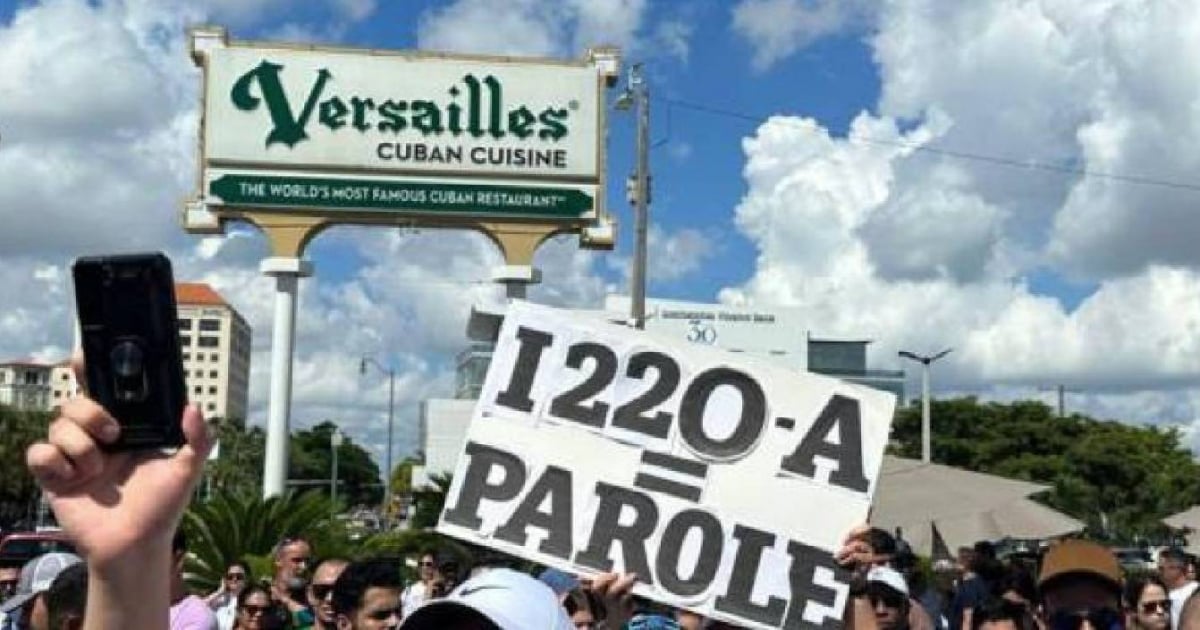The recent ruling by the Board of Immigration Appeals (BIA) has sparked significant interest among the Cuban migrant community in the United States, particularly those who were released with the contentious I-220A form after crossing the southern border. While the decision addresses an individual case, the legal reasoning behind it may establish a pivotal precedent.
This ruling examines the situation of a migrant who was issued an I-220A form—a type of supervised release without granting immigration status—instead of being processed under Section 235 of the Immigration and Nationality Act. The Act allows legal entry through parole. The Board determined that this method was incorrect, as applicants for admission, like this migrant, should have been processed under the aforementioned section, meaning their legal release would only be valid if parole was granted.
Rosaly Chaviano, an immigration lawyer based in Miami, explained to journalist Alexis Boentes from Telemundo that this decision significantly alters the legal landscape: "This argument is no longer just our interpretation as lawyers; it is now supported by a federal court's interpretation."
Parole—a status permitting a migrant to enter and stay legally for humanitarian or public interest reasons—is a crucial requirement for eligibility under the Cuban Adjustment Act. Traditionally, those who entered with an I-220A have been excluded due to the lack of this status. However, with this new precedent, lawyers might argue that their clients should have been granted parole from the outset.
New Legal Strategies Emerge
The attorney highlights that several legal strategies are now being pursued, as the judicial interpretation empowers defenders to:
- Request corrections in entry records.
- Appeal previous residency denials.
- Strengthen interviews before USCIS.
- File new motions in immigration courts.
"This decision opens a door in court for us to tell a judge, 'my client should have received parole and therefore qualifies for residency,'" Chaviano notes.
Concerns for Migrants with I-220A
However, she also points out a concerning aspect of the ruling: migrants with I-220A do not have an automatic right to bond if detained by ICE, leaving them vulnerable to any legal issues, even when attending a scheduled appointment.
"Certainly, if someone commits a crime, they can be arrested and would not have the right to bond. But we've also seen cases where ICE decides to detain someone when they show up for an appointment," she cautioned.
Understanding the Impact of the I-220A Ruling
What is the significance of the BIA's ruling for Cuban migrants with I-220A?
The BIA's ruling could establish a crucial precedent, potentially allowing Cuban migrants with I-220A to argue they should have received parole, making them eligible for residency under the Cuban Adjustment Act.
How can lawyers leverage this ruling to assist their clients?
Lawyers can request entry record corrections, appeal past residency denials, bolster USCIS interviews, and file new motions in immigration courts, using the ruling to argue for their clients' eligibility for parole and residency.
What are the risks associated with having an I-220A form?
Migrants with an I-220A form do not have an automatic right to bond if detained by ICE, exposing them to potential detention without bond, even for attending scheduled appointments.
